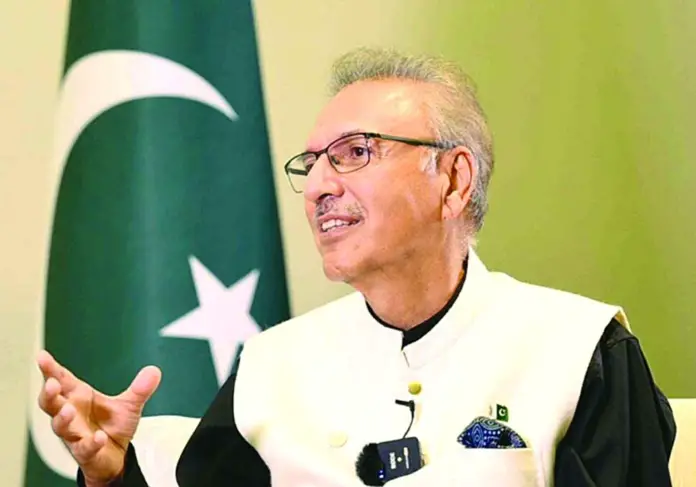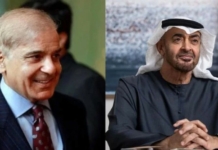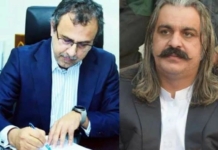President Arif Alvi has said that the information and communications technology (ICT) sector is a game-changer for the national economy.
He stressed the need to bring about a paradigm shift in ideas and attitudes besides improving intellectual and innovation abilities among the youth.
Addressing the launching ceremony of Web 3.0 here at the Punjab Information Technology Board on Friday, he said there was a need to accelerate speed manifold for making solid policies. He said such policies should not be rolled back by any change in government. He stressed finding out-of-the-box solutions to the existing and emerging issues and challenges.
He said, “We can earn US$15 billion per year in the IT sector in two to three years.”
The president said, “There is a pressing need for our political, administrative and intellectual capital to fully focus on artificial intelligence in public and private sectors while adopting a much faster pace than the current one.”
He said the world was entering the next level of defence system, which was cyber security and cyber defence, adding that the Russia-Ukraine war had demonstrated the power of cyber security and cyber defence.
He said in terms of generating new and creative ideas, Pakistan was second to none, but the need of the hour was information and data sources.
Alvi said the current level of human resources and technology was unable to handle the immense data being generated around the world, adding that “around 80 million trained human resource is required only in the cyber field if we are able to train our human resource in this sector alone. We can overcome the unemployment issue in the country and provide high paying jobs to our youth”.
He said, “This can be achieved by rethinking and resetting our entire education system in a mode capable of providing quality education and skills in shortest possible time to our youth by the use of online and hybrid mode.”
The president said the world was looking towards Pakistan because of our youth bulge; trained and skilled youth was needed to fuel the rapidly developing world of information iechnology.
He said, “If we failed to develop this precious human resource, the untrained youth bulge would become a burden on the national economy.”
The president said, “We have been producing doctors, engineers and other professional by spending scarce national resources, but, unfortunately, these educated and quality human resources were exported to other countries. Abroad, they contributed immensely to growth and development of their host countries, depriving our country of this precious human resource, resulting in an acute shortage in almost all sectors of life.”
He said this trend needed to be reversed by creating enabling conditions in the country for their willing retention by promoting online sale and marketing of the talent, which would eventually improve current status of our standing in the comity of the nations.
Alvi said the prime minister’s digital skills development programme and such programmes could be replicated as fast as possible to exponentially increase the number of skilled professionals and imparting digital skills to the youth.
He said: “There is a pressing urgency to fully develop our ICT sector and multiply our IT exports by overcoming the dearth of educated and trained human resources, improving the overall ease of doing business and the IT eco-system of the country, embracing innovation, and adopting forward looking policies”.
The world was moving toward quantum computing which were million times faster than our existing super computers, he added.
He said, “We should set up a board to create a system to take up research and develop quantum computing and forging alliances and linkages with the R&D institutions for its adopting on fast-track basis.”
He said that the IT and artificial intelligence could revolutionise the health sector by creating chat bots, online and web based-help services, using conventional and social media to educate masses regarding nature and spread of communicable and non-communication diseases.







